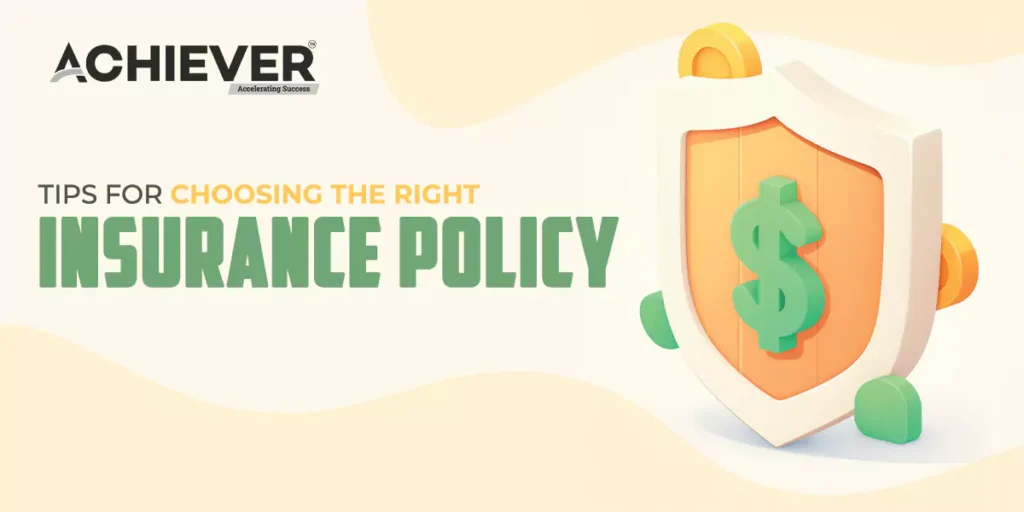In a world filled with uncertainties, comprehensive insurance coverage is more than just a financial tool—it is an essential safeguard that provides peace of mind and long-term stability. Whether it is health, auto, home, or business insurance, having the right type of coverage protects you from a variety of risks and ensures that you are prepared for both the expected and unexpected events in life. However, navigating the insurance landscape can be complex, with a range of options and policies available. In this article, we’ll delve into what you need for truly comprehensive coverage, focusing on key insurance categories and why ensuring adequate protection is vital for your financial security and well-being.
Health Insurance: The Foundation of Personal Well-being
Health insurance is one of the most important aspects of comprehensive coverage. Medical emergencies, chronic conditions, and regular healthcare needs can quickly lead to overwhelming costs. A comprehensive health insurance policy not only protects you from financial ruin but also ensures that you have access to essential health services when you need them most.
When evaluating your health insurance, make sure it covers all essential health benefits mandated by the Affordable Care Act (ACA). These include hospitalization, emergency services, maternity care, mental health services, prescription drugs, and preventive care. Preventive care, such as annual physicals, vaccinations, and screenings, helps detect health problems early, reducing the need for costly treatments down the line. Your policy should also include chronic condition management, offering sufficient coverage for regular treatments and medications if you suffer from conditions like diabetes, heart disease, or asthma.
Mental health, often overlooked in the past, has become a key part of comprehensive health coverage. Many health insurance providers now include mental health services, such as counseling and psychiatric care, as part of their standard offerings. Given the growing prevalence of mental health issues, particularly in the wake of the COVID-19 pandemic, this coverage is crucial for maintaining overall well-being.
Finally, with the rise of telemedicine, it’s important to ensure that your health insurance includes coverage for virtual healthcare. Telemedicine allows you to consult with doctors and specialists from the comfort of your home, offering convenience and, in many cases, cost savings.
Auto Insurance: Protecting Yourself and Others on the Road
Driving comes with inherent risks, and comprehensive auto insurance provides protection for you, your vehicle, and others. While most states mandate basic liability insurance, this alone may not provide enough coverage in the event of an accident. Comprehensive auto insurance should include several key components to offer full protection.
Liability coverage is essential, as it protects you from legal and financial repercussions if you are responsible for injuring others or damaging their property. However, to fully protect your assets, it’s advisable to purchase more than the state-required minimum. Collision coverage is also vital, as it pays for repairs or replacement of your vehicle following an accident, regardless of who is at fault. This can be a lifesaver, especially if you rely on your car for daily commuting or business purposes.
Comprehensive coverage extends protection beyond accidents, covering damage from non-collision events such as theft, vandalism, natural disasters, or falling objects. This type of coverage is crucial for safeguarding your vehicle from a variety of risks, especially in areas prone to severe weather or high crime rates.
For full protection, consider adding uninsured/underinsured motorist coverage. Despite legal requirements, many drivers are either uninsured or carry insufficient coverage. This insurance protects you if you’re involved in an accident with one of these drivers, covering medical bills and repair costs.
Homeowners Insurance: Safeguarding Your Most Valuable Asset
For most people, their home is their most valuable asset. Comprehensive homeowners insurance not only protects your home but also your belongings and liability. It ensures that, in the event of a disaster or accident, you won’t face significant financial hardship.
Dwelling coverage is the cornerstone of homeowners insurance, covering the cost of rebuilding or repairing your home if it’s damaged by covered perils such as fire, storms, or vandalism. It’s essential that your policy covers the full cost of rebuilding your home, not just its market value, as reconstruction costs can be much higher.
Personal property coverage protects your belongings, such as furniture, electronics, and clothing, against theft, fire, and other covered events. Ensure that your policy provides enough coverage to replace these items, and consider purchasing additional riders if you own high-value items like jewelry, art, or collectibles.
Liability coverage is another important aspect of homeowners insurance, as it protects you from lawsuits if someone is injured on your property. In today’s litigious society, having robust liability coverage can prevent a financial catastrophe in the event of an accident.
One key addition to comprehensive homeowners insurance is loss of use coverage, which pays for temporary living expenses if your home becomes uninhabitable due to a covered event. This ensures that you and your family have a place to stay while repairs are made.
Finally, depending on your location, you may need flood or earthquake insurance, as these events are often not covered by standard homeowners policies. If you live in an area prone to floods or seismic activity, securing these additional coverages is critical to protecting your home.
Business Insurance: Shielding Your Enterprise from Risks
For business owners, comprehensive business insurance is essential for protecting your company from a wide range of risks. From property damage to lawsuits, uninsured risks can devastate a business financially.
General liability insurance is crucial for covering claims of bodily injury, property damage, and personal injury that occur on your premises or as a result of your products or services. For companies that own or rent property, property insurance covers the physical structure, equipment, inventory, and furnishings, protecting against losses from fire, theft, or natural disasters.
Business interruption insurance is often overlooked but vital. It covers lost income and operating expenses if your business is forced to close temporarily due to a covered event, such as a fire or storm. This insurance ensures that your business can survive while repairs are made.
For businesses with employees, workers’ compensation insurance is usually required by law. It covers medical expenses, rehabilitation, and lost wages if an employee is injured on the job. Additionally, cyber liability insurance has become increasingly important as businesses face growing risks from data breaches and cyberattacks. It covers the costs of responding to a breach, including notifying affected customers, legal fees, and recovering lost data.







